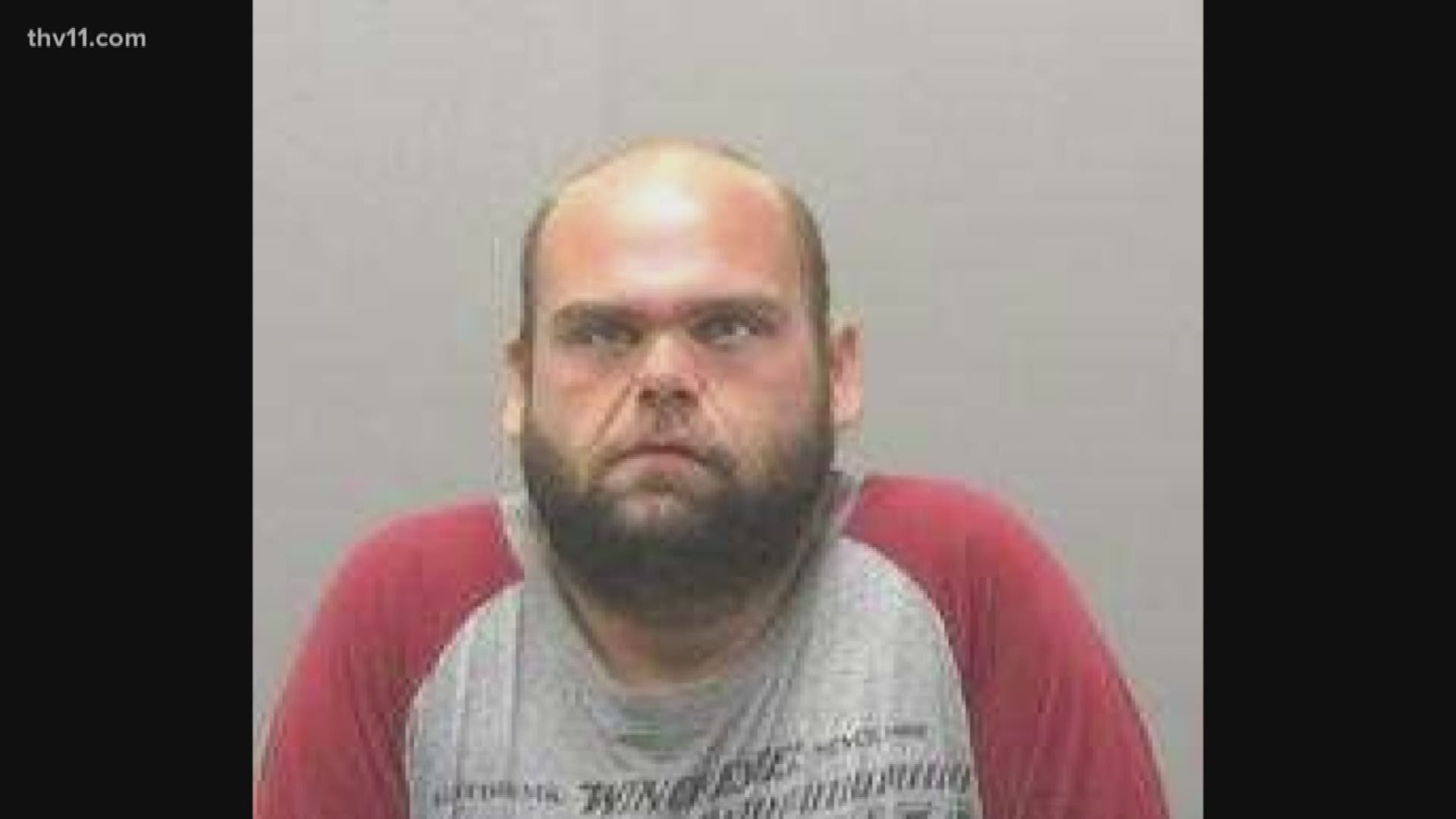Court officers and advocates for the homeless knew Jonathan A. Scott needed some sort of mental health treatment, but the Hot Springs man never overtly threatened anyone until police say he waved a shotgun at officers in the middle of Central Avenue on a busy summer Sunday.
Scott is in "very critical" condition after his weapon fired, apparently hitting officer Jonathan Smith, prompting other law enforcement on the scene to take him down on a sidewalk of Hot Springs National Park.
Smith was released from the hospital Sunday night and is on paid leave during the investigation by Arkansas State Police.
Court records show Scott has a long criminal history in Arkansas and was a familiar presence at various outreach centers that help the unsheltered in Garland County.
"He took advantage of our services fairly frequently. He was certainly welcome to do so," said Janie Smith, the head of Jackson House, who noted Scott came to one of her volunteers six days before his armed confrontation with police.
"They could sense that he was a bit agitated but mostly sad. More of a depressed state of mind."
Scott has at least two protection orders in place in Arkansas, and indications he was a felon in other states. He produced an out-of-date Iowa identification for the volunteers at Jackson House.
After getting arrested in April for running a stop sign, prosecutors tried to get him mental health treatment, according to public court records.
For four days in late May, Scott appeared in court via video link three times while staying at the Garland County Detention Center.
Deputy prosecutors said they were working with Ouachita Behavioral Health and Wellness to place Scott in some sort of residential treatment. But those beds are full. Instead, Scott was sentenced to 30 days in jail.
"It's disappointing that there are so many in the forensic system that need treatment," said Dr. Rob Gershon, the CEO of OBHAW, who added he could not confirm or deny treating Scott because of privacy laws, but spoke in general terms.
"It falls to law enforcement to handle these people when many need treatment for mental health issues or substance issues, but those services aren't available."
Another arrest came earlier this month for public drinking. Scott skipped a court appearance, prompting a warrant and his arrest Friday. He pleaded guilty, and somehow, two days later, had a gun.
He can be seen pulling it from his waistband as he walked past surveillance cameras on Central Avenue.
His confrontation with police came moments later.
Prosecuting attorney Michelle Lawrence said it's too early to speculate on what kind of case eventually comes her way. She noted that the fact that Scott apparently started on a city sidewalk before crossing to National Park territory could be a complicating factor and could lead to federal charges.
The detention center has been full to capacity this summer, creating challenges for sheriff Mike McCormick. He pointed to the recent court records to say those challenges did not alter how long Scott stayed behind bars this year despite concerns over his mental health.
"He had been incarcerated for as long as he was assigned and was never released early at any point in his last two recent incidents," the sheriff said.
McCormick called the problems with jailing the mentally ill and those in need of substance treatment a "different situation."
"We work with all the support systems we have in place," he said while listing about a half-dozen agencies and non-profits. "We have all of these here locally, but many of those facilities are just out of space."
As for fears within and without the homeless community, Janie Smith said people probably need not fear the unsheltered who struggle with mental illness.
"From the statistics that I've seen, your Average Joe is much more likely to create criminal activity or do something harmful to others," she said. "Most mentally ill on the street are more in fear of you."

